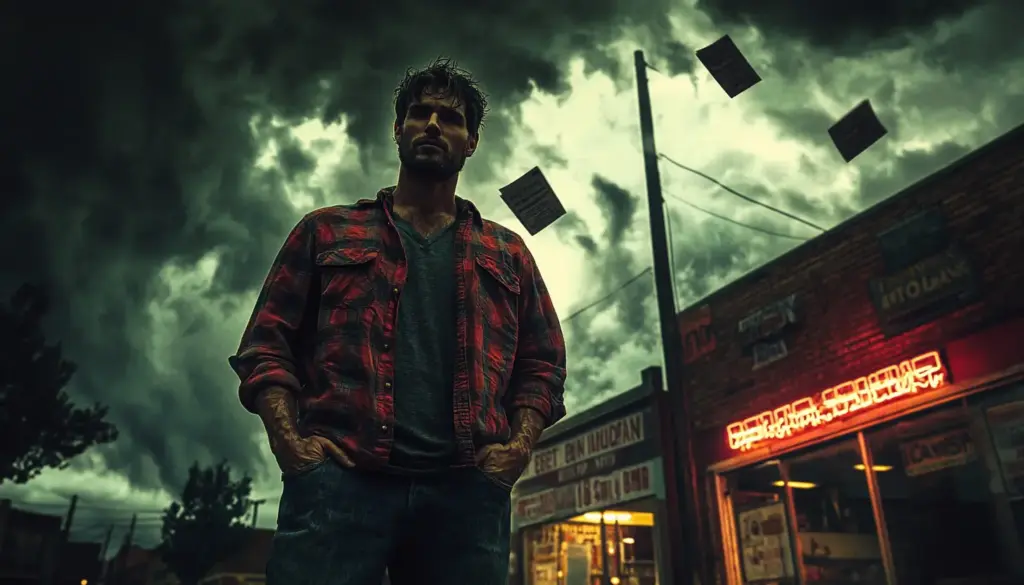
When “Covered” Isn’t Covered Enough
Commercial umbrella insurance probably isn’t something you think about while unlocking your storefront at 6 a.m. or juggling payroll and inventory between customer calls—but maybe it should be.
Take Mike, who owns a neighborhood café with three employees and a handful of loyal regulars. One rainy Tuesday, a delivery driver slipped on the curb outside his shop. The fall turned into a lawsuit, and that lawsuit stretched well past what Mike’s general liability policy covered. Legal fees, settlement costs, and stress piled up. In the end, he didn’t just lose money—he nearly lost the business he’d built from the ground up.
Here’s the hard truth: most small business owners are one weird accident away from a coverage gap that can shake their entire livelihood.
You might have property insurance. Liability. Commercial auto. But commercial umbrella insurance is what steps in when those policies tap out. It’s not flashy, but it’s the difference between writing a check and closing your doors.
In the sections ahead, we’re going to walk through how these gaps happen, what umbrella insurance really covers, what it costs, and why it may be the smartest move you haven’t made yet.
Why Most Business Insurance Leaves You Exposed
You’ve done your part. Signed the papers, paid the premiums, and filed the policy packet somewhere safe. On paper, it feels like your business is covered. But here’s the catch—what most insurance doesn’t tell you is where your protection stops.
Let’s say you run a small electrical contracting company. One of your trucks rear-ends a luxury SUV during a job. The driver sues, claiming injury and long-term loss of income. Your commercial auto insurance pays out… but only up to its limit. Once that cap is hit, anything left comes out of your pocket.
Now picture that same scenario but with your general liability policy. A customer slips in your showroom and breaks a hip. They sue for medical expenses, lost wages, and pain and suffering. If the claim exceeds your policy limit—which happens more often than you think—you’re on the hook for the rest.
This is where commercial umbrella insurance comes into play. It doesn’t replace your existing policies; it extends them. When your primary policy maxes out, umbrella insurance steps in to cover the overflow—legal costs, settlements, and judgments that would otherwise come straight out of your business or personal assets.
Even if you’re not in a “high-risk” industry, claims like these aren’t rare. A single lawsuit can tip a stable business into chaos. And the kicker? These liability limits haven’t kept up with real-world costs. Hospital bills, legal fees, and even reputational damage can snowball faster than most policies can handle.
For someone like Brian, who’s already stretched thin managing people, paperwork, and profit margins, these are the kinds of hidden landmines that keep you up at night—if you know they exist at all.
So before you assume you’re protected, it’s worth asking: “What happens if something goes really wrong?” If your current policies can’t answer that clearly, commercial umbrella insurance might be the safety net your business didn’t know it needed.
Commercial Umbrella Insurance Explained in Real Terms
Insurance talk can feel like a second language—and one most business owners don’t have time to learn. But commercial umbrella insurance doesn’t have to be complicated. In fact, it’s one of the most straightforward types of coverage out there… once someone explains what it actually does.
Let’s break it down.
You already have core policies in place. General liability. Commercial auto. Maybe even employer’s liability. All of these policies have limits—usually a few hundred thousand to a couple million dollars, depending on what you selected when you signed up.
Now picture this: one day, a serious incident hits your business. It could be an injury, a vehicle crash, or property damage tied back to your operations. Your standard policy does its job and pays out… until it reaches its ceiling. After that, there’s nothing left. If the claim continues climbing—which many do—you’re suddenly left to pay the difference out of pocket.
That’s where commercial umbrella insurance steps in. It’s designed to catch what slips through after your main policy hits its limit. Think of it like the airbag after the seatbelt fails. You don’t plan to need it—but when you do, it can be the one thing that keeps the business alive.
Here’s what it covers:
- Excess liability: It kicks in once your base liability policy pays its maximum.
- Legal defense costs: These can run into six figures fast, and umbrella coverage helps pay for them.
- Judgments and settlements: If a court awards damages higher than your base policy limit, umbrella insurance picks up the rest—up to your chosen limit.
It’s important to note: umbrella coverage doesn’t apply to everything. It doesn’t replace property insurance or cover employee injuries (that’s workers’ comp). It’s purely about liability overflow—the stuff most business owners don’t think about until they’re knee-deep in court dates.
For someone like Brian, who just wants straight answers and real protection, the value here is simple. You keep your current policies. You pay a fraction more for an umbrella layer that could save you hundreds of thousands. No hidden strings. No fluff.
Think of it as adding muscle to the policies you already have—because when it comes to lawsuits, “just enough” coverage often isn’t enough at all.
What One Claim Could Really Cost You
Ask any seasoned business owner, and they’ll tell you: it’s not the common problems that sink you—it’s the one big unexpected hit.
Let’s say you run a small landscaping company. One of your crew members forgets to secure a trailer, and it rolls into traffic, causing a multi-car accident. Several people are injured. The medical bills alone total $700,000. Your commercial auto policy? It caps out at $500,000. That leaves $200,000 unaccounted for—plus legal fees, settlement negotiations, and potentially even punitive damages.
Where does the rest come from?
Without commercial umbrella insurance, the answer is: from you. That might mean draining your business accounts, tapping into your personal savings, or taking out a loan just to keep the doors open. In the worst cases, it means shutting down completely.
Here’s a quick look at how fast the numbers add up:
- Legal defense in a liability case: $150,000+
- Medical expenses in a severe injury: $250,000+
- Settlements or court-awarded damages: Easily $1 million+
Even if you have solid primary policies, one serious claim can blow past those limits with speed and force. And these aren’t rare, dramatic events—they’re everyday situations with high-dollar consequences. A cracked sidewalk. A delivery gone wrong. A third-party injury at a job site.
For Brian, whose focus is on growth, stability, and keeping promises to his team and family, this kind of financial shock isn’t just a business problem—it’s personal. The risk isn’t just about money. It’s about time, peace of mind, and the future you’ve worked so hard to build.
Commercial umbrella insurance was created for this exact scenario. It’s not there for every little bump in the road—but it’s built to protect you when the road crumbles beneath your feet.
That means if the claim hits $1.2 million and your base policy covers $500,000, your umbrella policy could take care of the other $700,000—so you’re not staring down bankruptcy over something that could’ve been handled with the right coverage in place.
Coverage That Protects Your Future—Without Breaking the Bank
The most common reason business owners skip commercial umbrella insurance? They assume it’s expensive. But here’s the surprise—it’s probably one of the most affordable policies you’ll ever buy.
Umbrella coverage isn’t a standalone plan. It builds on your existing liability policies, which means it kicks in only when needed. Because it rarely pays out, the risk for insurers is lower—and that translates to lower premiums for you.
So how much are we really talking about?
Let’s take a local retail shop as an example. The owner already has $1 million in general liability coverage. They want an extra $2 million in protection through an umbrella policy. Depending on factors like location, number of employees, and industry risk level, they might pay anywhere from $500 to $1,500 a year for that added protection.
To put that in perspective:
- It’s less than most businesses spend on monthly coffee runs for the team.
- It’s less than the average deductible on a single property claim.
- And it could save you millions in the event of a major lawsuit.
Pricing is influenced by:
- Your industry and risk exposure
- How many underlying policies you have (liability, auto, etc.)
- The limits you already carry
- Your claims history
For business owners like Brian—juggling payroll, taxes, and a thousand other costs—it’s easy to delay “extra” insurance. But commercial umbrella insurance isn’t extra. It’s the firewall between one ugly lawsuit and financial disaster.
And the peace of mind? That’s hard to put a number on.
You’re not just protecting your bottom line. You’re protecting your family’s future, your employees’ jobs, and everything you’ve built.
Best of all, you don’t have to guess what you need. A quick call with a trusted advisor can show you what’s smart, what’s wasteful, and how to get the most value for your dollar—without pressure, confusion, or sales games.
Make the Call That Future-You Will Thank You For
You don’t need one more thing on your plate—but you do need protection that holds up when it matters most. You’ve worked too hard to build a business that supports your family, your team, and your lifestyle to let a single unexpected event put it all at risk. The truth is, basic coverage often stops short—but your responsibility doesn’t. That’s where commercial umbrella insurance becomes more than a policy; it becomes peace of mind.
One quick step today can keep future-you from scrambling to fix a preventable crisis tomorrow. Get the extra layer of protection your business deserves—without the hassle, and without overspending.
